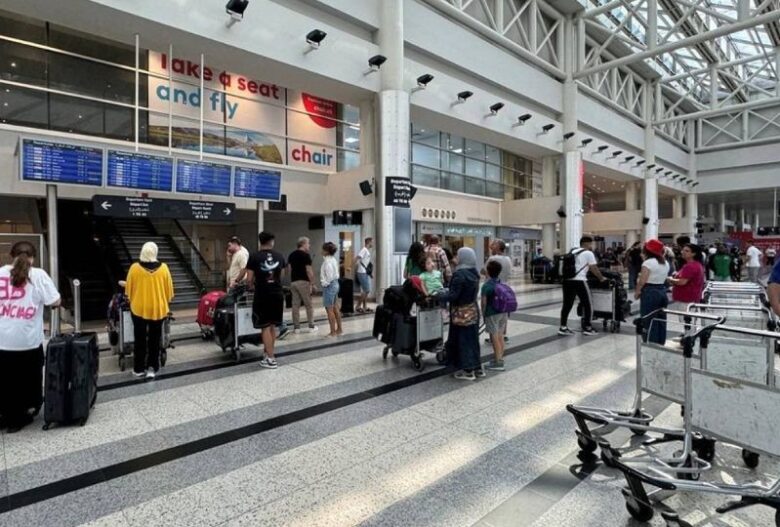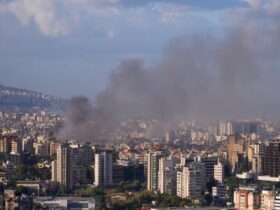This warning comes as Iran and its allies prepare to respond to high-profile killings attributed to Israel.
Diplomats are working to prevent a larger escalation, and French President Emmanuel Macron and Jordanian King Abdullah II emphasised the need to avoid regional military escalation “at all costs” following a telephone call.
With expectations of significant military actions involving Hezbollah, the Iran-backed Lebanese group, Israeli Defense Minister Yoav Gallant warned that any attack on Israel would result in severe consequences.
The ongoing war in Gaza between Israel and Hamas has already led to widespread regional violence. On Sunday, an Israeli strike hit two schools in Gaza City, resulting in at least 30 deaths. This brings the number of schools hit in Gaza since early July to at least 11. Israel confirmed the strike, claiming that Hamas was using the schools.
Near Tel Aviv, a stabbing attack resulted in two deaths. The attacker, a Palestinian from the West Bank, was neutralised by police and later pronounced dead at the hospital.
Hezbollah, which has been engaged in near-daily exchanges of fire with Israeli forces since the outbreak of the Gaza war in October, announced the deaths of two of its fighters.
The Lebanese Health Ministry reported that an Israeli strike in the southern village of Hula killed two people. Hezbollah claimed responsibility for a new barrage of rockets into northern Israel, though the Israeli military intercepted most of the 30 projectiles fired.
Early Monday, sirens sounded in northern Israel’s Upper Galilee region after suspicious aerial targets were detected crossing from Lebanon, resulting in a fire and injuries to an officer and a soldier.
Since the escalation began in October, about 547 people have died in Lebanon, including 115 civilians, according to an AFP tally. In response, Saudi Arabia and France have urged their citizens to leave Lebanon, citing the volatile security situation. France has also advised its nationals in Iran to leave temporarily.
Several Western airlines have suspended flights to Lebanon and other regional airports. Qatar Airways announced reduced operating hours for its Doha-Beirut route.
The recent assassination of Hamas leader Ismail Haniyeh in Tehran, following the killing of Hezbollah’s military chief Fuad Shukr in Beirut, has prompted vows of retaliation from Iran and its allied groups. Israel has not confirmed its involvement in Haniyeh’s death but has stated its intention to destroy Hamas in retaliation for the October 7 attack, which resulted in 1,197 deaths and the seizure of 251 hostages, 39 of whom are still held.
Israel’s retaliatory actions have reportedly resulted in at least 39,583 deaths in Gaza, according to the territory’s health ministry, though this figure includes both militants and civilians.
The killings of Haniyeh and Shukr have cast doubt on Israel’s willingness to seek a ceasefire. Mediators from Qatar, Egypt, and the US have been working to broker a truce and hostage-release agreement.
Analysts predict a measured but coordinated response from Iran and its allies, while Tehran expects Hezbollah to target deeper inside Israel.
In response to the situation, the United States is deploying additional warships and fighter jets to the region.
White House Deputy National Security Adviser Jon Finer stressed the urgency of achieving a ceasefire. Secretary of State Antony Blinken has also emphasised the need to de-escalate regional tensions.
Jordanian Foreign Minister Ayman Safadi has engaged in rare discussions with Iranian officials, while the G7 group has expressed serious concern over the potential for further escalation.
The International Crisis Group has warned that the killing of Haniyeh has brought the Middle East to its most perilous moment in years and called for a ceasefire to reduce tensions.
Israeli Prime Minister Benjamin Netanyahu has faced criticism for prolonging the conflict but has stated that peace is achieved through strength.









Got a Question?
Find us on Socials or Contact us and we’ll get back to you as soon as possible.